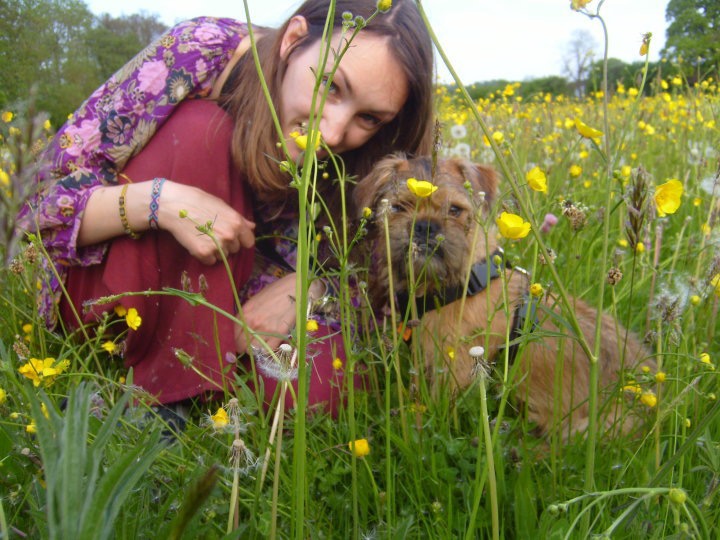Uncertainty, change, and interpersonal conflict. My personal kryptonite. A potent trio that has the ability to sap my strength and send me spiralling into an anxiety-ridden tailspin. Like many other Neurodivergent thinkers, anxiety has become a key part of my life but I hope that by stepping into the shadows to understand my kryptonite I will be able to tackle the anxiety that threatens to unhinge me.
As someone who tries to manage (control) change for a living, it is impossible for me to avoid my kryptonite and I often find myself battling with my inner anxiety. When coupled with the energy it takes for me to engage with people socially, it can be exhausting and I often get to the end of the week feeling drained and unable to face the world.
I am split into two beings as I lose my ability to control the darker side of my emotions and my shadow self takes over
In extreme situations it can rob me of my ability to think logically, trust in my own thoughts, feel safe around others, and get a full nights sleep. At its worst, it is like Superman meeting black kryptonite. I am split into two beings as I lose my ability to control the darker side of my emotions and my shadow self takes over. I become short-tempered and dismissive of people around me, and say things without thinking. I loose confidence in who I am, become unable to make decisions, and question everything.
The Shadow Self
I recently learnt about Shadow Work on a course that I attended, and I was intrigued. It was all about the parts of you (predominantly primal & negative, like rage) that you deny in yourself. We learnt that there are also positive attributes hidden in our shadows, and it is only when we seek to acknowledge and integrate our shadows that we are able to access these hidden positive attributes. It was a reminder that we can't be our full selves when we are masking. This is the road to burnout.
I have spent so much energy trying to avoid my shadow self, masking and denying that part of myself. The part of me that doesn't try to connect with other people, that is prickly and focused on tasks rather than people. The thought that these attributes can be a positive is a bit of a game-changer.
Understanding my triggers
It took me a while to understand my triggers. I started making a note of the times that the world and I seemed to be at cross purposes with each other. I didn’t realise what they were, until I took a step back and spent time thinking about it. This wasn’t a quick process. It has taken me over a year to spot patterns in my anxious moments, and the common factors surrounding them.
Now I know what they are, it seems so obvious and I am starting to be able to predict when they will occur. For me this is the first step to conquering it, and changing things.
My next goal is to find a way to avoid the anxiety by partnering with people around me, so that the anxiety is reduced and possibly even eliminated.
Calling in reinforcements
Knowing what my triggers points are, means that I am now able to predict when difficult situations are likely to arise. In fact, I am even starting to realise that there are certain times of year when I am more likely to struggle - at the beginning of the year when we are re-evaluating the strategy for the year, during summer when I need to get things done but can't get hold of people as they are on holiday, and in the run up to Christmas when there is increased social demands.
I am now working with my clients, team and coach to work out a support plan for getting me through the anxious moments, so that I don't end up negatively impacting myself or the peopke around me.
Understanding my strengths
I have come to realise that my need to reduce uncertainty is one of my strengths. It is what drives me to work out what is needed, and focuses me to work through a problem long after many other people would have given up. It drives me forward as I don't like it when I can't find an answer.
I am also starting to realise that I should fear my prickly disruptive side. As a manager once told me "we don't want yes men". My willingness to challenge the people around them, is also a strength. It makes them time to question their decisions and actions, which sometimes leads to improved decision making.
Perhaps it is time I stop fearing my anxious self, and find ways to make it work for me. The key is finding the balance so that I can embrace my strengths without being overwhelmed by anxiety.
Considerations in the workplace
Anxiety can be a daily challenge for many people, especially for those who are neurodivergent.
Neurodiversity means understanding what can cause anxiety and ensuring employees have a support network so that they are not overcome with anxiety, which leaves them unable to make the most of their strengths.
Work with employees to identify their kryptonite, their shadow selves and their support plan for when they need it most.
Everyone needs a little support. It is time we start to see helping people through anxiety as an enabler to increased performance, rather than a challenge which needs to be addressed when someone is struggling.



